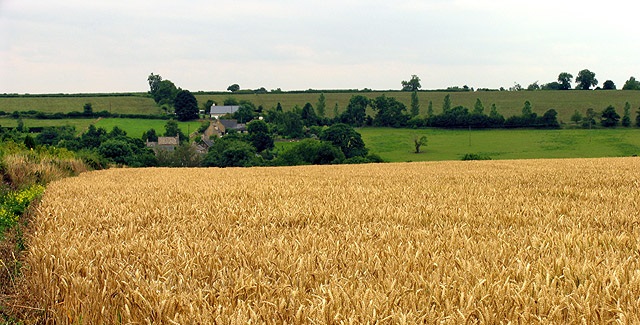
On the back of a record UK wheat harvest, East Yorkshire bio-refinery Vivergo is calling for the Government to support initiatives that will cultivate an alternative market for wheat and support farmers, as well as benefiting the environment.
With the NFU warning that this year’s grain surplus is forcing the wheat price below the cost of production and increasing instability in the market, Vivergo, one of Europe’s largest producers of bioethanol and protein rich animal feed, is asking the Government to push forward with the mandatory introduction of E10 – a renewable transport fuel containing 10% bioethanol, which is one of the products that can be created from animal feed grade wheat.
Currently, up to 5% of bioethanol is blended with regular petrol at the pump. By 2020, European countries must ensure that 10% of transport fuel is sourced from renewable sources to reduce transport’s environmental impact. In Yorkshire and Lincolnshire, Vivergo’s bioethanol manufacture is boosting the fortunes of wheat farmers to the value of £1m per month, as opposed to the much smaller export value they could achieve. This is playing a vital role in enhancing the regional economy, supporting local farmers and creating agricultural jobs, something Vivergo wants to see increased through the introduction of E10.
Mark Chesworth, Managing Director of Vivergo, commented: “E10 represents a fast, cost-effective and straightforward channel for the UK to stabilise the market for farmers and, at the same time, meet EU emissions challenges – an issue currently dominating headlines, as air pollution worsens. The bioethanol we produce reduces GHG emission by over 50% compared to petrol.” Vivergo believes that by increasing the current 5% bioethanol blending ratio in petrol the Government can help to strengthen operations for wheat farmers who will benefit from competitive pricing and a more stable market.
“In transport, E10 will help to reduce global emission levels, mitigate the rapid rate of climate change, and improve air quality.”
Historically, much of the feed grade wheat grown in East Yorkshire region has been exported into mainland Europe to feed animals and for use in European biofuel production. However, since Vivergo opened its £350m plant in 2012 at Saltend, near Hull, the region’s farmers have been taking advantage of an alternative market for their wheat. The company uses 1.1m tonnes of animal feed grade wheat per year, which is commonly used for animal consumption, to produce both low carbon fuel and high protein animal feed.
Wheat farmer John Holtby, who runs Dowthorpe Hall Farm, at Skirlaugh, just a few miles from the Vivergo biorefinery, said: “This has been the biggest wheat harvest that most of us can remember, but with falling prices and excess production in Europe, the market remains tough. Thankfully in this region, Vivergo has created an alternative use for our feed wheat and is providing local farmers with fair prices, which is invaluable.”
Mark Chesworth added: “With the UK’s largest mill, we offer a 365 day demand for local arable farmers, providing a new sales channel, often giving more competitive rates for their feed-wheat as opposed to the previous export of this commodity.
“We source from local farms within a 50-mile radius and not only are we supporting local farmers, but we’re also bolstering the UK economy by supporting approximately 2,400 jobs so far, directly and indirectly, with scope to create many more in the future, particularly in the agricultural sector.
“It is essential that the UK government is supportive in terms of legislation to increase the current bioethanol blending ratio through E10, so that Vivergo and other UK producers can continue to provide a long term, sustainable and stable future market for UK farmers.”
